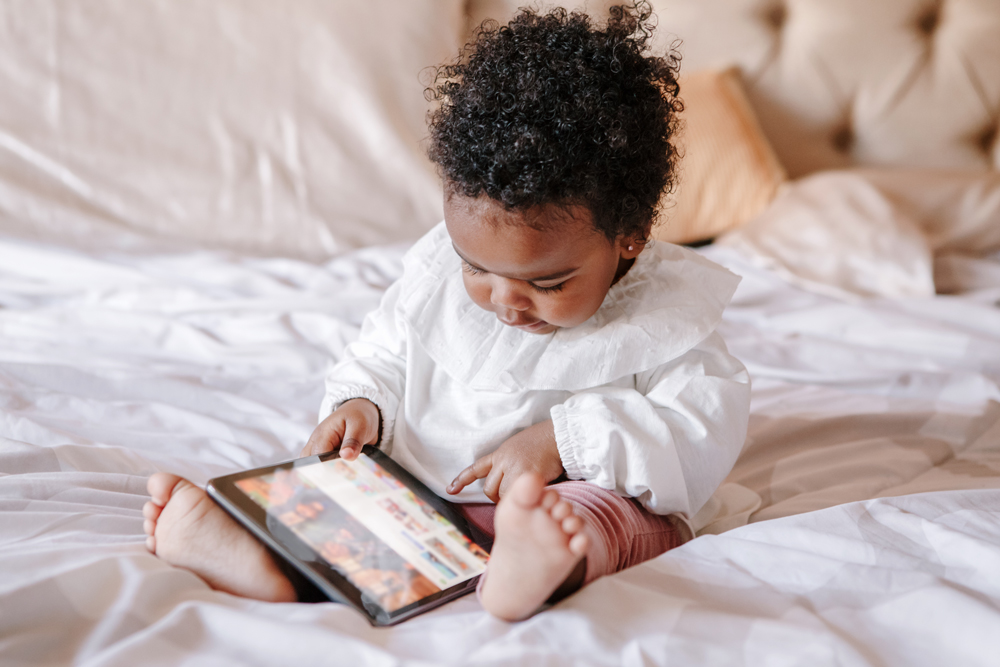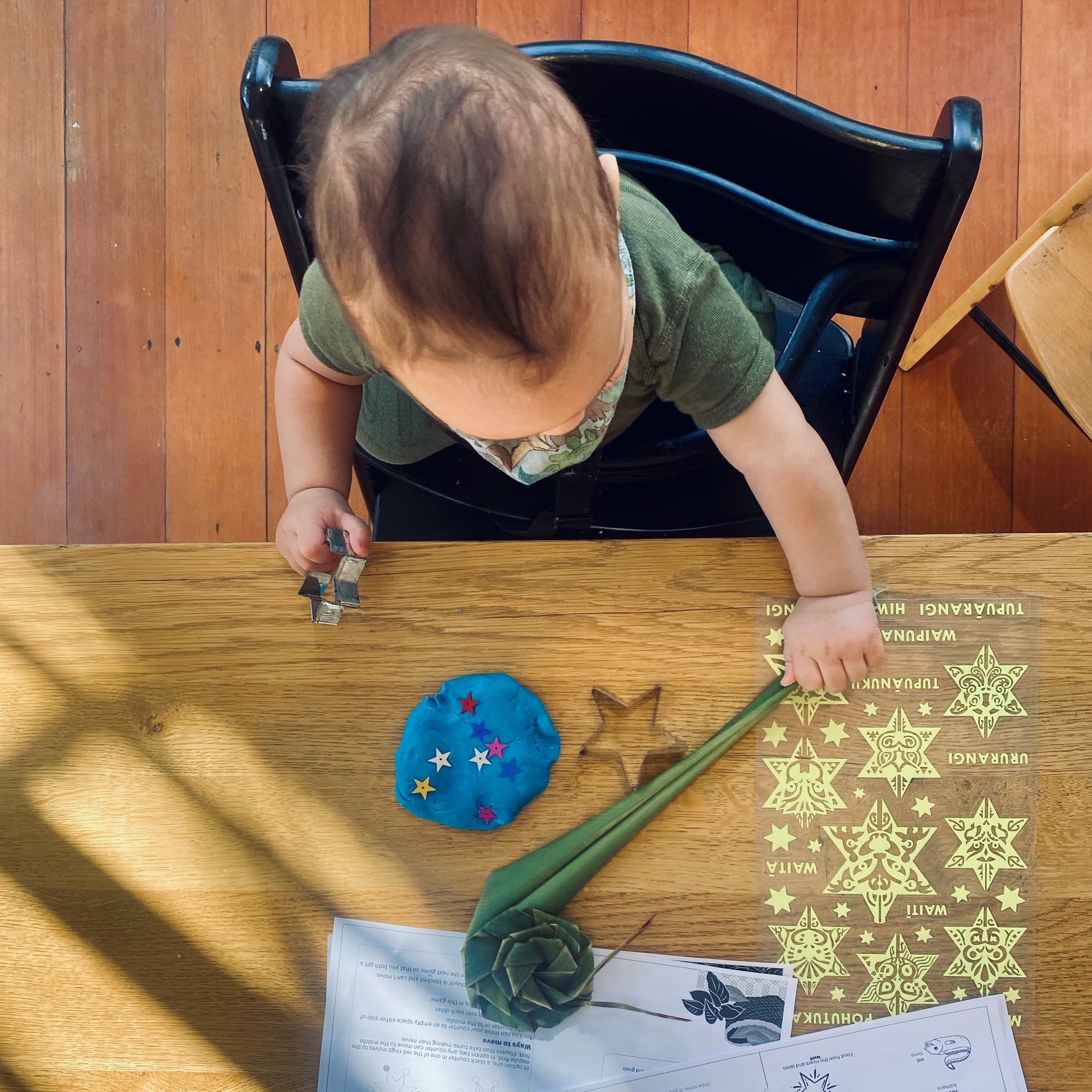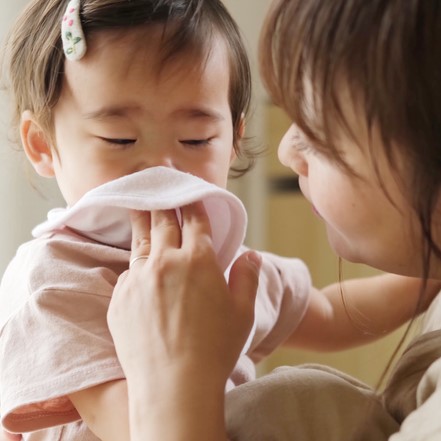How Much TV Should Your Child Be Watching?

It’s all about balance.
Thanks to an abundance of research, it’s widely acknowledged by healthcare and education professionals that children should sit less and move more. But what do the guidelines say about babies and toddlers having screen time?
Given most of a baby’s brain development happens in their first two years of life, this stage especially should be filled with opportunities to explore and learn about the world around them. In fact, it’s imperative that to grow up physically and mentally healthy all young tamariki need to have as many real-world experiences as possible, meaning physical play, time playing outside, creative play, activities like reading, storytelling, and singing with a caregiver, and social interactions with whānau and friends.
We know that when a child is spending time watching a screen, they have less time in the day to be engaging in these types of activities. So, where does screen time fit into all of this? How much should a baby or toddler be having?
The Guidelines
- The World Health Organization (WHO) and the Ministry of Health (MOH) currently recommend zero recreational screen time for children under 2 years of age. The only exception to this being video chatting.
- For kids aged 2 to 5, the recommendation is no more than one hour per day, less is best.
- And for those aged 5 to 17 years, it’s advised to have no more than two hours per day. Again, less is best.
According to the 2019/20 New Zealand Health Survey, 88 percent of children aged under one to 14 exceed the recreational screen time guidelines.
The Evidence
- The Ministry of Social Development’s 2019 study, Effects of screen time on preschool health and development, found that “children who exceeded the one hour per day screen time guideline at 2 years are more likely to be obese, have more illnesses and visits to the doctor, have lower physical motor skills, and may exhibit hyperactivity problems at 4.5 years of age.”
- A 2021 peer-reviewed evidence brief, Screen time: The effects on Children’s Emotional, Social and Cognitive Development, produced by Koi Tū: The Centre for Informed Futures at the University of Auckland found that “while recommendations to limit or avoid screen time without specifying the type of screen use may appear advantageous, such blanket time limits do not reflect contemporary New Zealand family life. There is insufficient scientific evidence to determine how much screen time is harmful.” The authors also wrote that “it may be more helpful to differentiate between the various available forms of electronic media and focus recommendations around engaging with screens in ways that minimise the chance of adverse effects and maximise the positive opportunities they can provide.”
- Most infants who are exposed to screens typically experience it in the form of a television being played in the background. Multiple studies have suggest that there is a link between infant screen time and moderately impaired language development.
Essentially, when used in moderation and provided the programming is educational and age-appropriate, letting your kids (aged over 2 years) watch screens isn’t inherently ‘bad’ and there are ways to mitigate any potential negative effects.
Creating Healthy Habits
There are some rules your whānau can implement to ensure screens are used healthily in your household:
- Ensure infants (aged under 2 years) have no recreational screen time.
- Monitor the content your child is exposed to.
- Balance watching screens with non-screen time by providing your child with plenty of opportunities for play each day, including physical activities, being in nature, and reading books.
- Model good habits by limiting your personal use and avoiding using your phone during meal times.
- Turn off the TV when it isn’t in use to avoid it playing in the background.
- Avoid screens at least one hour before bed and keep TVs out of bedrooms.
- Set time limits for screen time use.
- When your kids are watching screens, be with them so you can talk about what you’re watching together.



